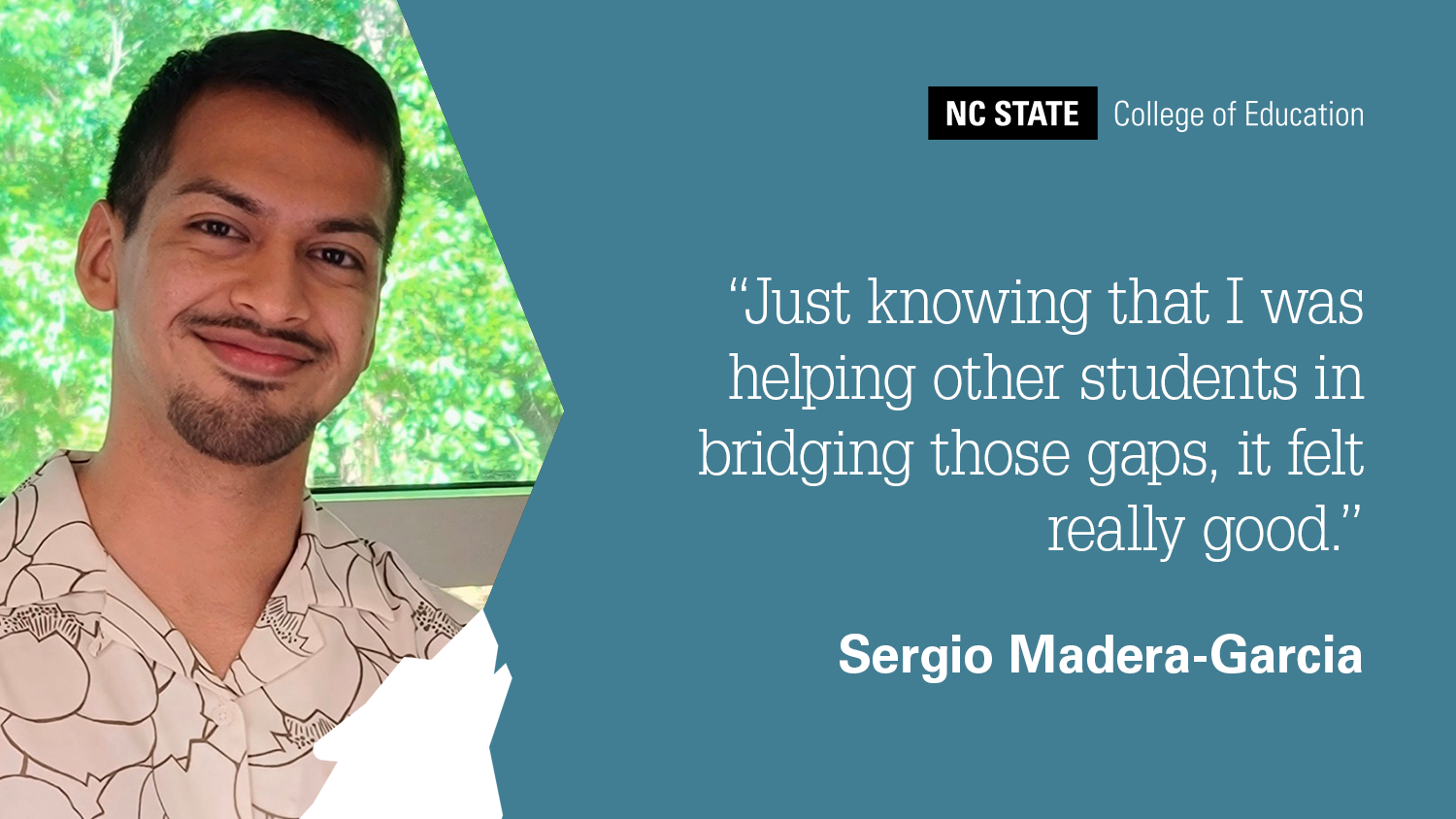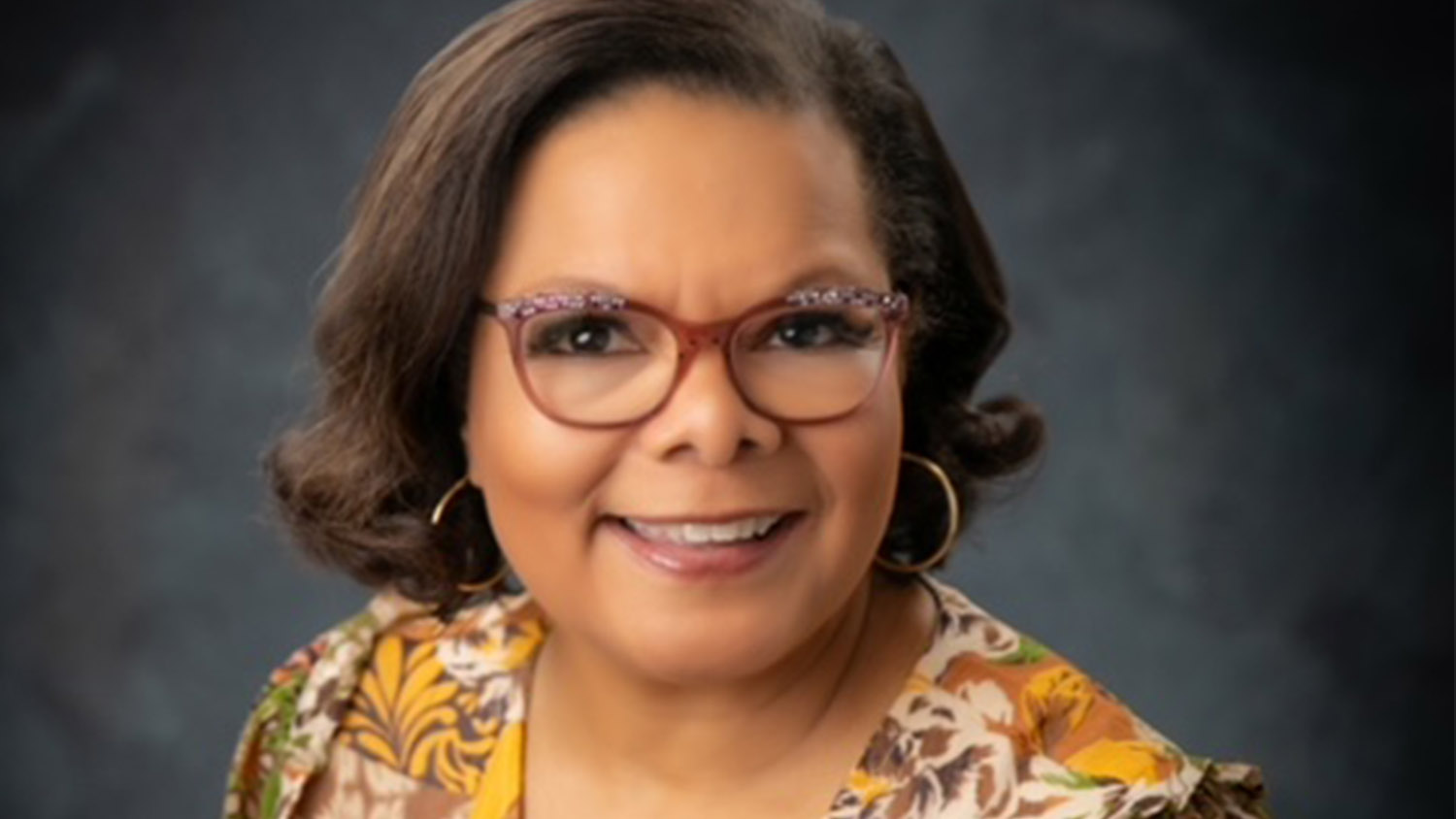#WhyIChoseEducation: ‘Just Knowing That I Was Helping Other Students in Bridging Those Gaps, It Felt Really Good,’ Says Sergio Madera-Garcia

In Goldsboro, North Carolina, Sergio Madera-Garcia, a master’s student in the higher education administration program, led a session at the 2023 LatinxEducation Summit entitled Somos de Aquí y de Alla: Leading From a Sense of Belonging.
Growing up, he loved being in the classroom, but often felt as if he did not belong or was not seen. His hope was that his session would inspire the educators in attendance to embrace their cultural roots and empower students in their community.
“If I can contribute to the conversation and participate, then let me do so,” Madera-Garcia said. “[Maybe] what I have to say will help somebody else coming in or who might be following in similar footsteps as I am.”
Madera-Garcia decided to earn his master’s degree in higher education after an opportunity to work in the University of North Carolina at Wilmington’s Centro Hispano as an undergraduate made him realize the impact he could make on the lives of students.
At NC State, he has continued to pursue that goal, serving as a graduate assistant for NC State Student Leadership and Engagement, where he oversees their Leadership Development Program. Separately, he interns at the Emily K. Duke Center, where he works with high school students.
His decision to lead a session at the 2023 LatinxEducation Summit represented another opportunity for him to support the field of education.
“People really paid attention; people were asking engaging questions,” Madera-Garcia said. “It helped me feel like I’m actually doing something in the capacity that I can to help make a difference.”
The following interview has been edited for length and clarity.
Why I Chose Education:
Working my last year at Centro Hispano, I definitely had some opportunities to support students. In my undergrad, I didn’t feel like I had that support, and I took a long time finding my sense of belonging and feeling comfortable with my intersectionalities.
Being able to assist students, especially with the student organizations, showing them who to ask, where to go — being that liaison or resource for them was something that felt really good to me.
As an educator, you wear several hats. You’re an advisor; you’re a counselor; you’re a mentor. People contact me to this day. Just knowing that I was helping other students in bridging those gaps, it felt really good.
How Education Shapes Me:
I think about my parents. My parents did not have the same opportunities in Mexico and so knowing that I’m contributing to the education system to make a difference in the system, knowing that I’m taking advantage of the resources that are accessible to me, knowing that I am persisting, knowing that I’m also doing this all authentically, I think it’s just all a full circle moment.
What I Enjoy Most About the College of Education:
One of the things that definitely stood out to me was just knowing how the program was built on a cohort model. Also, knowing that the professors lead with empathy, that they’re always coming from a place of understanding, checking in with us, even seeing where we’re at and being willing to be flexible with us. So, just understanding that we’re all humans at the end of the day.
What Others Should Know About the College of Education:
One of the things that really stood out to me, even during orientation, was just the emphasis on community. That has always resonated with me since before being admitted to the program and throughout my time here at NC State, and it’ll be something that I definitely resonate with even after graduating from the program.
What Inspires Me:
I would say the high schoolers that I work with in Durham County Schools. My internship is with the Emily K. Duke Center in Durham and, in total, I oversee 24 students. All the students are Brown students and Black students, and so being able to have honest conversations with them, bridging that gap for them, helping them feel empowered but also informed, too, with what’s happening, realistically in the country, what’s happening in North Carolina, what’s happening locally in Durham County, in the Triangle area even, is something that has really inspired me.
Sometimes I still feel like, “Why am I in this space? Why should they be listening to me?” But knowing how much they ask questions, knowing and seeing how they’re actively listening, knowing they’re there for a reason; it’s something that definitely encourages me to continue this work.
- Categories:


